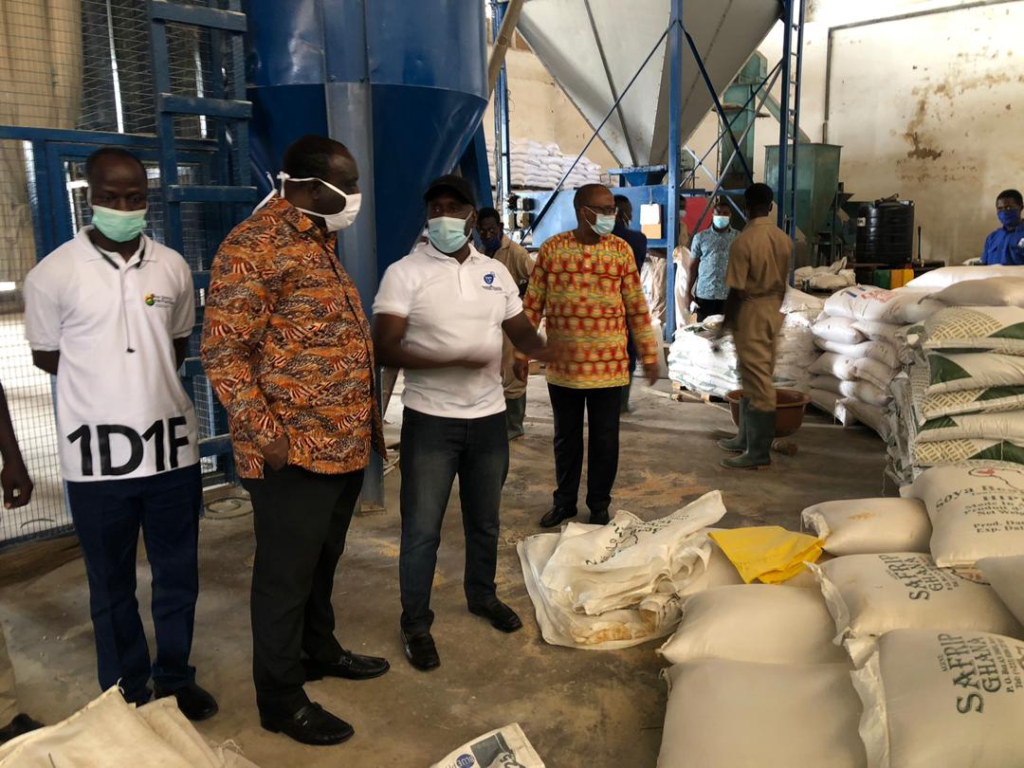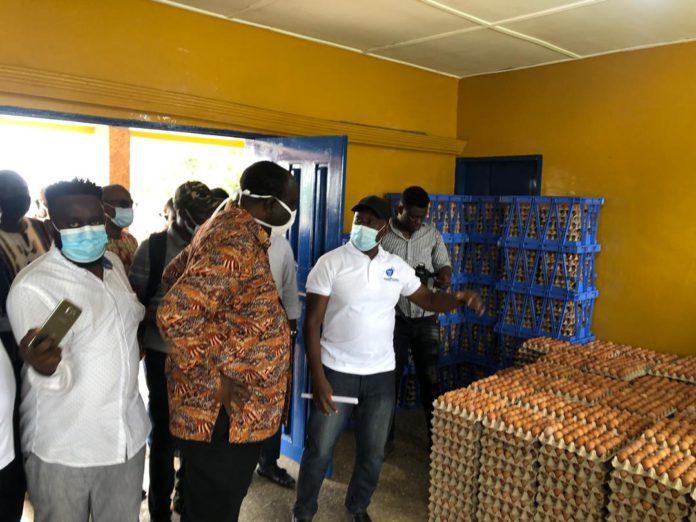Darko Farms has now been revitalised under government’s One District One Factory (1D1F) programme with reinjection of ¢22 million capital from the Ghana Exim Bank.
The Trade Minister, Alan Kyeremanteng, as part of his second phase business tour of Business Resource Centres and 1D1F factories in the Western North, Ashanti and Bono East Regions paid a whistle stop at Darko Farms where he relished government’s revitalisation programme for struggling factories.
“This is an existing company that had fallen into distress because of harsh economic conditions in the past. If the government intends to support industries it should not only be to incubate industries but also resurrect existing industries in distress.
“This company falls into all categories we look for in 1D1F companies. It is creating a significant level of jobs,” Alan Kyeremanteng explained.
So far, ¢18 million of the injected capital has been disbursed for the revitalisation of Darko Farms with the remaining GHC4 million expected to be rolled out in months time.
The impact of this capital will see a massive expansion of the production capacity of this poultry producing company.
Management of Darko Farms are confident that the production capacity will shoot up by nearly half – from four million day old chicks a year to seven million when the new equipment is installed.

Managing Director for Darko Farms, Samuel Darko, tells Joy Business, the intervention will shoot up capacity and export margins of the company.
“The 1D1F has really brought Darko Farms on the radar. We needed finance to augment production and that’s the impact we have seen. It’s a major input. With the intervention of 1D1F we will go into full production by December producing 200,000 birds a month, 60 tonnes of poultry farmers a day,” he expressed.
Government’s support for Darko Farms under the One District One Factory Initiative is strategic in import substitution analysis.
In 2018, Ghana imported 511,960 broiler day-old chicks and 7,130,999 layer day-old chicks (source Ghana Poultry Project).
Currently, there is limited regulation on local hatcheries. The government of Ghana is yet to pass into law a hatchery bill, which will ensure that quality day-old chicks are produced from domestic hatcheries.

